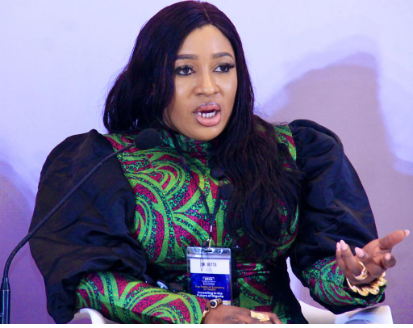The new Minister of Humanitarian Affairs and Poverty Alleviation, Dr. Betta Edu, has stated that the ministry will create a trust fund for emergency and humanitarian responses in the country.
The minister, who appeared on Arise TV’s The Morning Show on Wednesday, said some Nigerians live under $1.95 a day, and that such “is not” acceptable to President Bola Tinubu, who is committed to changing the narrative.
“We’re going to create a trust fund for emergency response and humanitarian response in the country, and of course, create protocols for this response,” Edu said.
She noted that the ministry would not depend solely on the Federal Government to work towards alleviating poverty and responding to humanitarian crises.
“The SDG goal says we must eradicate poverty by 2030 and we, as a country, can not be setting a target to go lower than what the UN has put on the table.
“And like we said, we’ll be unveiling our full plans to Nigerians,” she said, adding that the citizens should support their plans.
She said President Tinubu completely understood what it meant to eradicate poverty from the country.
“This is going to be an administration that we’ll speak to Nigerians, we’ll communicate through every means possible,” adding that her office will be “very transparent.”
The minister mentioned that several poverty alleviation methods will be implemented, among which are programmes related to “improving and increasing the social net, access to equity and social investments into Micro, Small and Medium-scale Enterprises.”
She said the administration is focused on “building the base which is ensuring that we move from a certificate-based economy to a skilled-based economy” that will be focused on diverse age groups,
Speaking further, Edu said that in order to address poverty, her office will verify the social register of “truly poor” people working in the state and local governments.
She added that a database will be used and made available to Nigerians, “so that they can hold us accountable for getting these people out of poverty.”
Edu said the ministry will be in a “consultative mode,” getting across to Nigerians at all levels, from the top to the lowest cadre of the society.
She stated that it’s pertinent to understand their felt needs.
The minister also noted that, even though there’s an action plan for poverty alleviation by the president, there’ll be an “implementation failure” if the plan isn’t domesticated.
She also mentioned that the ministry, in an interaction with its development partners, is working towards developing “humanitarian protocols” for Nigeria,
When asked if she’ll look at the works of her predecessor, Sadiya Farouq, so as to ensure there’s no repetition of the former minister’s errors and mistakes., Edu stated that her office will look into what had been done by the past administration to alleviate poverty, how they were implemented and the challenges faced.
She added that they will also consider the successes of Farouq’s administration.
Edu emphasised that people who don’t deserve to be on the social register will be removed, owing to their failure not to meet certain set criteria.
She noted that the social register was done but the involvement of the state and local governments wasn’t as “robust” as it should be. She assured that the register will be reviewed and updated, noting that the review isn’t intended to underestimate the work done by the World Bank and the National Safety Net.
“We are bringing private sector fully into the humanitarian and poverty alleviation space,” recalling the impact of the sector during the Coronavirus pandemic era.
Edu mentioned the over $270m commitment of the United Nations Children’s Fund, and the Fund’s partnership to set up a humanitarian situation room to “monitor, prevent, mitigate and reintegrate people when they have humanitarian crisis back into society.”


